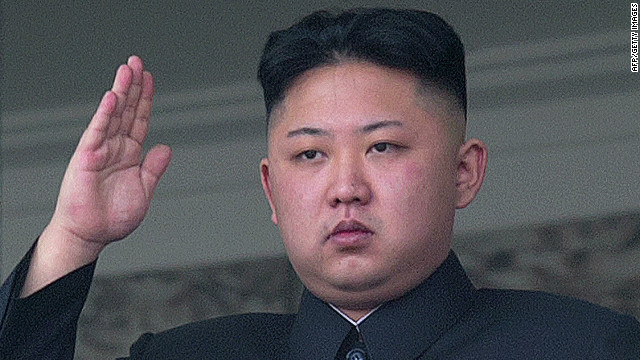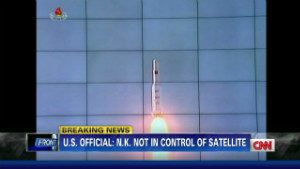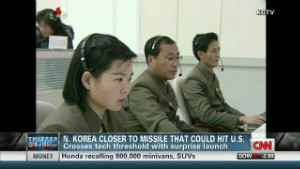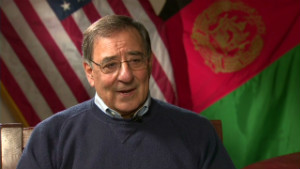Experts: Rocket launch bolsters North Korean leader
December 16, 2012 -- Updated 1211 GMT (2011 HKT)

North Korea's rocket launch may have helped leader Kim Jong Un establish clout.
STORY HIGHLIGHTS
- With rocket launch, Kim Jong Un can bolster domestic support
- Ahead of his father's death anniversary, leader can say he fulfilled a promise to his people
- Experts say Kim has positioned himself to make economic changes
- It's unclear what will happen next in the reclusive nation
This week, Pyongyang fired a long-range Unha-3 rocket and
sent a satellite into orbit. Nervous world leaders quivered as the
rogue country defied a United Nations ban on developing nuclear- and
missile-related technology.
Was the world a more dangerous place after Wednesday's event?
What would it mean for North Korea's young leader as he is about to
mark the first anniversary of the death of his father, Kim Jong Il?
When the son ascended to
power, concerns surfaced over an inexperienced, mysterious heir taking
charge of North Korea's nuclear weapons program, its hardcore and cultish communist society and a population of the hungry.
 U.S. 'still assessing' N. Korea launch
U.S. 'still assessing' N. Korea launch
His eldest half brother said in his book that he was concerned Kim Jong Un would fail to satisfy North Koreans.
Now, the new "Dear
Leader" can claim not just a public relations victory but also a
tangible accomplishment as he prepared for Monday's anniversary of Kim
Jong Il's death.
Amid the dearth of information, one thing was clear: Kim Jong Un can now stand proud before his people on that big day.
"The question is what
does Kim Jong Un intend? said Leon Sigal, director of the Northeast Asia
Cooperative Security Project at the Social Science Research Council in
New York.
"It's been an interesting first year but as with most things in North Korea, we simply don't know," he said.
 North Korea launch: Kim's power
North Korea launch: Kim's power
Few nuclear experts saw
the launch as a tremendous technological advancement, but the
perceptions were great and gave Kim a big boost in clout. He can say he
fulfilled a promise that has kept his family dynasty in power for
decades; that the nation's persistence to move on -- despite
international isolation and internal hardship -- has paid off.
In that sense, the
satellite launch was proof of progress and power, said Bill Richardson,
the former U.S. ambassador to the United Nations who traveled to North
Korea in 2010.
"He wants to show his
people after one year in leadership, North Korea is a strong military,
technological, space, nuclear power (with) nuclear weapons," Richardson
said.
"I think that was partly to shore up the military, to shore up his support," he said.
 Panetta: US still assessing NK launch
Panetta: US still assessing NK launch
James Schoff, a North Korea specialist with the Carnegie Endowment for International Peace, agreed.
"I think this is very important to Kim Jong Un to build political legitimacy
and bolster the spirits of his people," he said. "He is doing this
despite the fact that he knows he is going to come into a lot of
criticism in the region for it."
The launch was a
continuation of Kim Jong Un's father's project and it was important to
achieve success days ahead of the death anniversary, especially after a
failed rocket launch in April. That launch had been timed to coincide
with the 100th anniversary of the birth of founding leader Kim Il Sung,
the grandfather of Kim Jong Un.
"Then, it was a major
embarrassment," said Han Park, director of the University of Georgia's
Center for the Study of Global Issues who was in North Korea at the time
of the failed launch. "So they tried to rectify that.
"This is a tremendous
psychological boost vis-a-vis the South," Park said referring to the
fact that South Korea has not yet put a satellite in space.
North Korea's ruling
politburo is sure to spin the story as national dreams coming to
fruition under the initiative of Kim, Park said.
Sure enough, the state-run news agency KCNA said the launch was "a desire at the behest" of Kim.
"All the people across
the country are greatly excited at the news of the successful launch and
progressives are extending sincere congratulations to them," it said.
The sentiment was echoed at a snow-dusted celebratory rally Friday.
"The successful launch
was the result of Kim's "unique will, courage and boldness," said Jang
Chol, head of the State Academy of Sciences.
The rocket launch allows
Kim to establish military security for North Korea, said Park, and
allows him to move forward with another priority: economic progress.
"This is an important game changer," Park said.
Park, who has been
visiting North Korea for decades, said conditions for ordinary North
Koreans remain bleak, though there is not the mass starvation the
country suffered in the 1990s.
"Kim Jong Un's primary objective is to improve the economy by participating in the international market," Park said.
That's a feat that is not possible without U.S. cooperation.
"So he realized he has
to improve relations with the outside world," Park said. "In the big
scheme of things, Kim Jong Un must have thought that North Korea would
be taken more seriously (after a rocket launch)."
Sigal said Kim has been consolidating his power for some time by sacking unwanted people from his Cabinet.
"Purge is too strong a
word but there have been all sorts of changes," Sigal said. "That's
telling me that this guy is taking charge and setting up for economic
policy changes. Kim Jong Un staked his personal prestige on economic
growth."
Sigal warned that at the moment, there were no signs of any economic changes.
Park, however, said he
could see some evidence of the North Koreans boosting agricultural
production, building hydraulic power plants and other infrastructure and
inviting foreign investors. The Chinese, in particular, have taken
advantage of that, Park said.
Sigal agreed that Kim
Jong Un has shown signs that he wants to stimulate economic growth but
the problem is that means he has to make a change from his father's military-first policy that devoted billions of dollars into weapons development.
"The question is does he
have the political muscle and the political will to do that?" Sigal
said. "He has certainly positioned himself to do that."
In the world's most totalitarian state, it's difficult to predict the
future.
But the rocket launch
this week certainly cast the spotlight back on the enigmatic nation and
served as a reminder to global powers that the North Korean problem
isn't just going to slither sway.
"He's saying to the
world, 'Look, I'm back,'" Richardson said about Kim Jong Un. "You can't
keep me off the headlines. I have to be dealt with. This is the
capability I have."
Richardson believes the
main message this week has to be that the United States and the four
other countries that have been involved in talks with North Korea --
China, Japan, South Korea and Russia -- have to come up with a new
approach in their dealings with Pyongyang.
"These guys are serious; they've got missiles now," Richardson said.
"It's uncertain about
the new leader," he said. "I'm disappointed, because I thought maybe
there's a positive political opening with him."
Maybe there still is.
Sigal said the only way
to get what Washington wants on the nuclear front is to come to the
table. It's also the only way to know more about North Korea.
Sigal likes to say that there is only one thing tougher than negotiating. And that's not negotiating.
CNN's Jamie Crawford contributed to this report.

ไม่มีความคิดเห็น:
แสดงความคิดเห็น